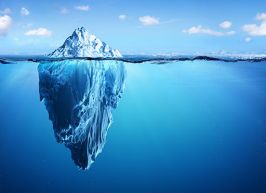Join getAbstract to access the summary!

Join getAbstract to access the summary!
Kerry Emanuel
What We Know About Climate Change
MIT Press, 2012
What's inside?
The first thing we know about climate change is that global warming is a scientific fact.
Recommendation
MIT professor Kerry Emanuel, a climate scientist, calls man-made global warming “perhaps the most consequential problem ever confronted by mankind.” In this primer, Emanuel details the science underlying the causes and impact of global warming. He explains why warming is taking place and discusses options for mitigating its impact. This 2012 update of Emanuel’s 2006 book provides more recent information about current scientific findings. getAbstract recommends his analysis to anyone who wants to stay informed on this vital topic.
Summary
About the Author
Kerry Emanuel, professor of atmospheric science in the Department of Earth, Atmospheric and Planetary Science at MIT, studies moist convection in the atmosphere and tropical cyclones.



















Comment on this summary